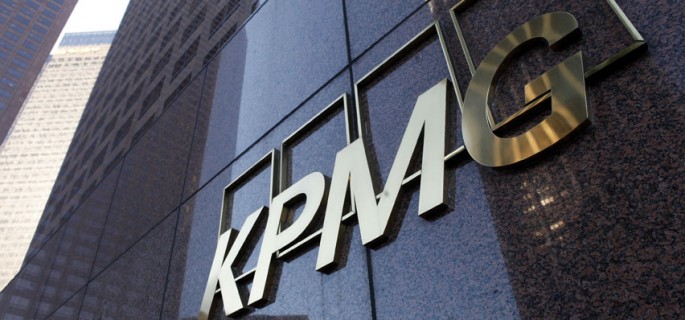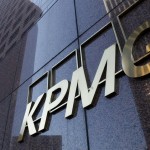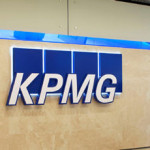KPMG is getting questioned to Wells Fargo sales-practices scandal

Wells Fargo & Co. isn’t the only one having to answer to Washington over its sales-practices scandal. Its longtime auditor, KPMG LLP, is getting questioned, too.
In a letter to KPMG last week, Sen. Elizabeth Warren (D., Mass.) and three colleagues said the firm’s failure to uncover practices that included Wells Fargo employees opening as many as two million accounts without customers’ knowledge “raises questions about the quality of your audits.”
Whether KPMG should have found the problems highlights a longstanding and troubling issue for investors: the role of auditors in catching frauds and the types of scams they are—and aren’t—supposed to spot.
Under audit rules, auditors are required to watch for potential fraud and conduct a variety of checks to try to unearth it. But they aren’t expected to catch every fraud, or even to actively look for every fraud.
If a fraud doesn’t have a direct, material impact on a company’s financial reports—and Wells Fargo says its problems didn’t—then the auditor isn’t required to proactively search for it. “The financial-statement audit is not designed to detect every fraud,” said Doug Prawitt, a Brigham Young University accounting professor.
The limits on an auditor’s responsibility to find fraud may help explain why it has been rare in recent years for regulators to pursue accounting firms over the issue. Ernst & Young LLP recently agreed to pay $11.8 million to settle Securities and Exchange Commission allegations it failed to detect fraud at audit client Weatherford International PLC, but that was the first such case the SEC had brought against a Big Four accounting firm since 2009.
That doesn’t mean the issue isn’t hotly debated. “I think people are raising the right questions over Wells Fargo, ’Hey, why didn’t the auditors tell us’,” said Lynn Turner, a former SEC chief accountant.
KPMG and its predecessors have audited Wells Fargo’s books since 1931. The audit firm gave the bank’s financial statements a clean bill of health each year while employees were engaged in the sales-practices behavior that led Wells Fargo in September to agree to a $185 million settlement with regulators. During that period, from 2011 through 2015, Wells Fargo paid KPMG $179.4 million in audit fees and $234.5 million overall.
After the senators’ letter, KPMG said in a statement the firm was “confident in our work and look(s) forward to responding.”
Wells Fargo didn’t admit or deny wrongdoing in its regulatory settlement. The bank has said it regrets its employees’ behavior and is working to refund improperly charged fees to customers.
John Stumpf, Wells Fargo’s now-former chief executive, has defended KPMG. The bank’s auditor does “a wonderful job,” he told the House Financial Services Committee in September. The scandal “is on us.”
Auditing standards make clear auditors do have a responsibility to look for fraud that would materially change the numbers the company reports to investors. And if auditors become aware of any fraud, no matter how small, they must tell the company about it.
“If they learn of any kind of illegal behavior in the course of reporting the audit, they have to report that,” said Dan Goelzer, senior counsel at the law firm Baker & McKenzie LLP and a former acting chairman of the Public Company Accounting Oversight Board, the government’s auditing regulator.
The key issue, though, is what is “material.” If a fraud is too small to affect the financial statements, and no evidence about the fraud crosses an auditor’s path, the auditor doesn’t have to go out of its way to look for it, Mr. Goelzer said.
Wells Fargo has contended its sales-practice scandal wasn’t material to its finances. The number of unauthorized accounts, the amount of money customers lost and the $185 million settlement had only tiny effects on the giant bank’s overall numbers.
The scandal did damage Wells Fargo’s reputation, but that is not something an auditor is charged with scrutinizing. “Auditors’ expertise is in financial statements,” Mr. Prawitt said. “They can’t be expected to anticipate other impacts like reputational impact or effects on the stock.”
Besides blessing Wells Fargo’s books, KPMG’s audits found no problems with the bank’s internal controls—policies and procedures to protect against fraud or error affecting the financial statements. Again, though, scrutinizing those wouldn’t necessarily turn up any fraud if it didn’t bear directly and significantly on the accuracy of the company’s numbers. “I’m not sure the internal-controls audit changes anything,” Mr. Goelzer said.
To make auditors more responsible for finding every fraud, some observers say, would require major changes in the nature of the audit. Brigham Young’s Mr. Prawitt said that would make an audit “so expensive it would not be doable.”
Source: WSJ – Wells Fargo: Where Was the Auditor?


























